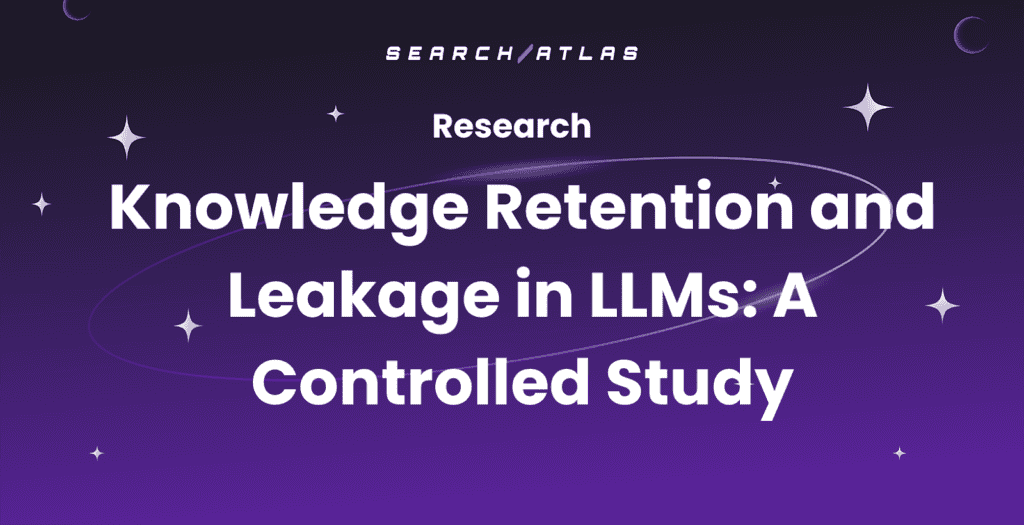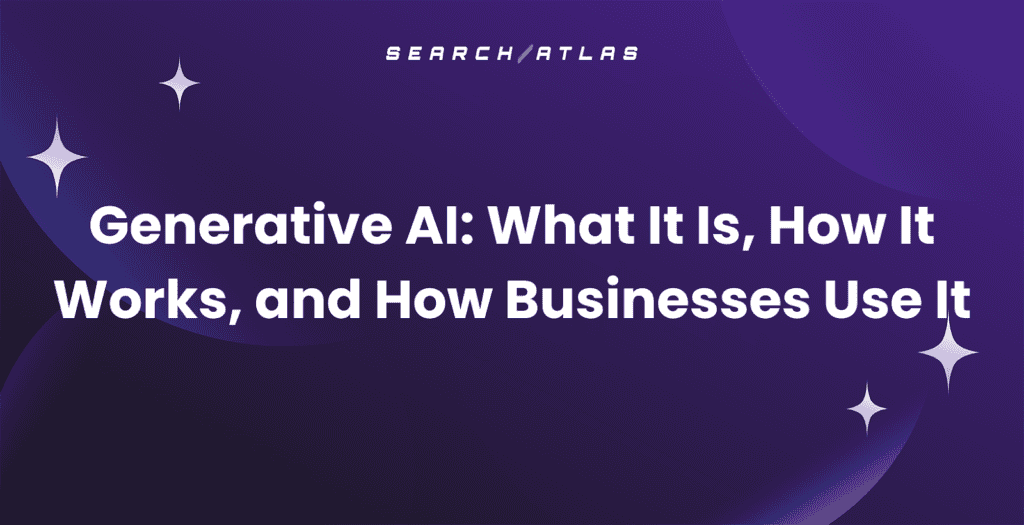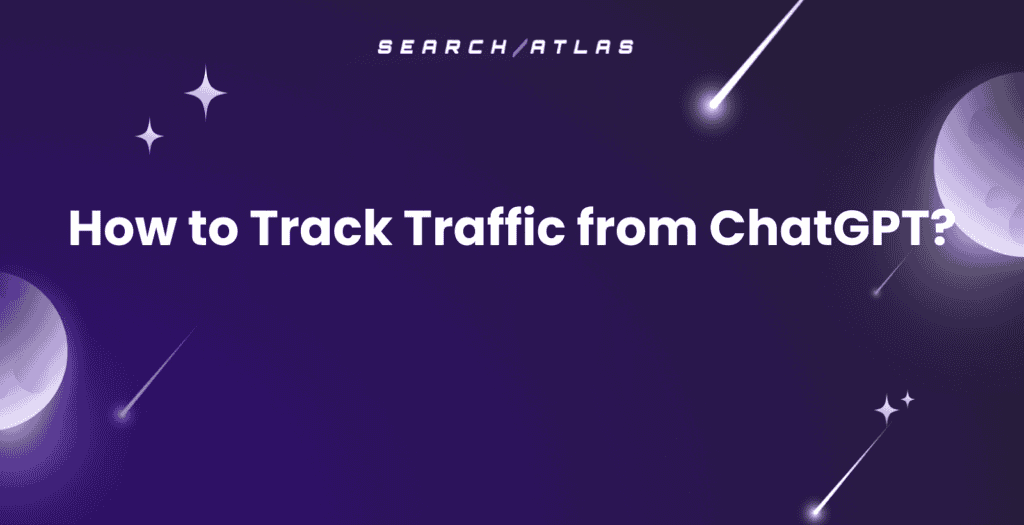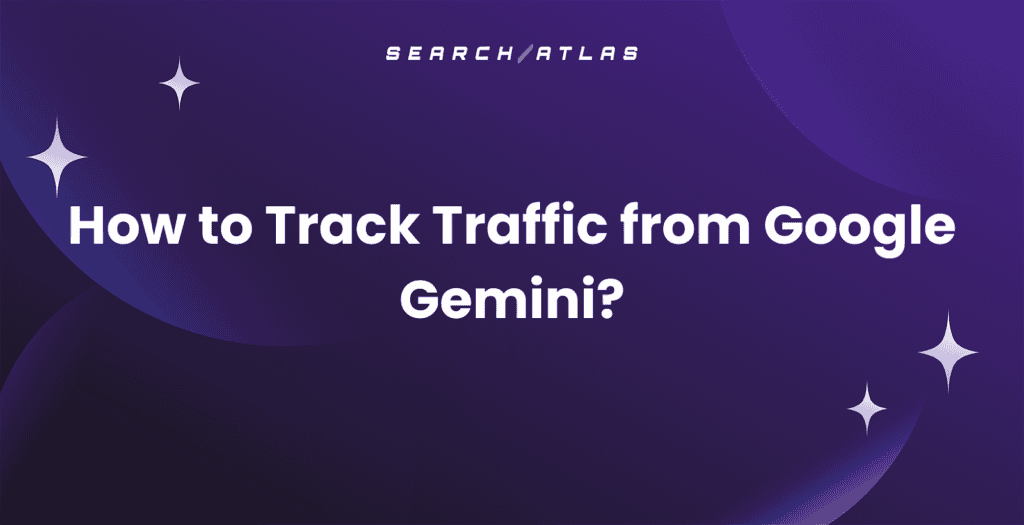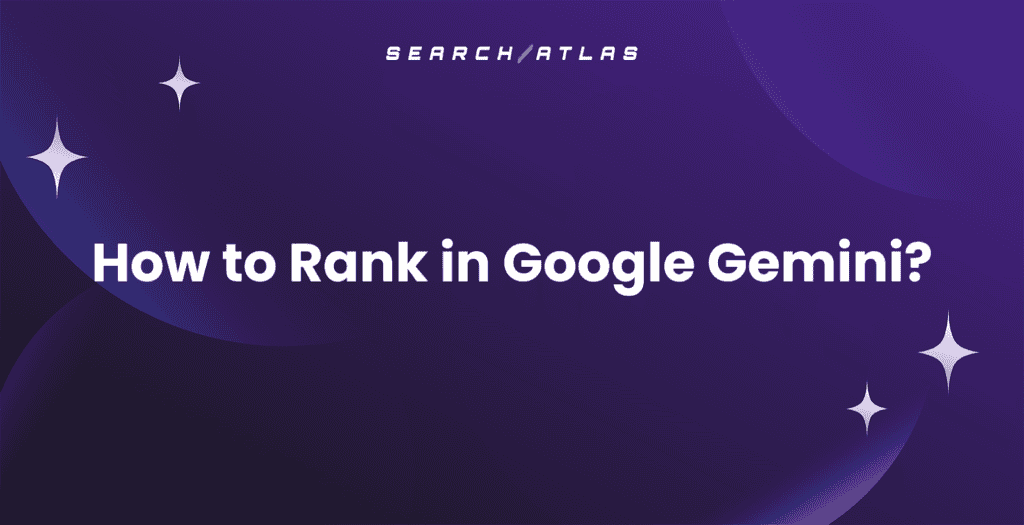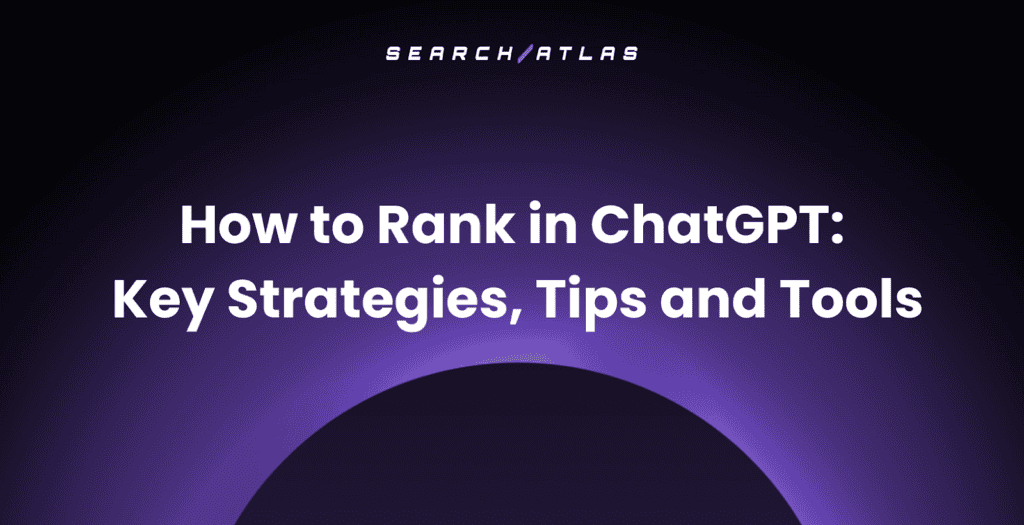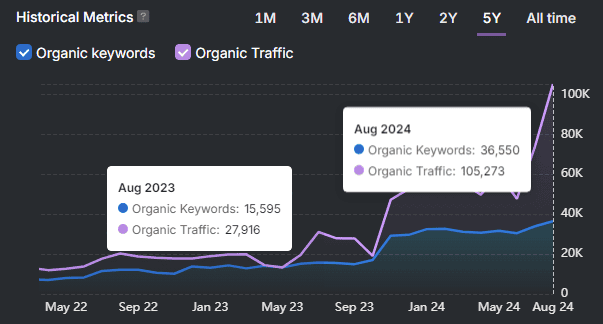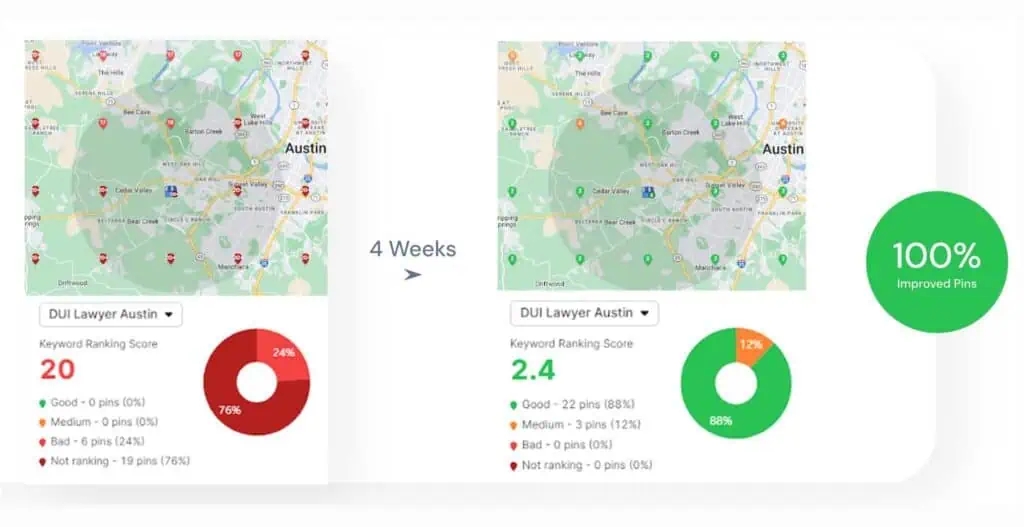Buzzsumo vs Semrush, two leading platforms built for digital marketers, content strategists, and SEO professionals. While they appear to overlap initially, exploring their core features and workflows quickly reveals their clear differences.
Your 2025 marketing stack needs the right tool, not the popular one. We tested both platforms extensively, documented their real capabilities, and identified exactly who wins with each.
This comparison cuts through the marketing speak to show you what Buzzsumo and Semrush actually do, where they disappoint, and which one deserves your budget. Let’s get started. 🔍
What Is Buzzsumo?
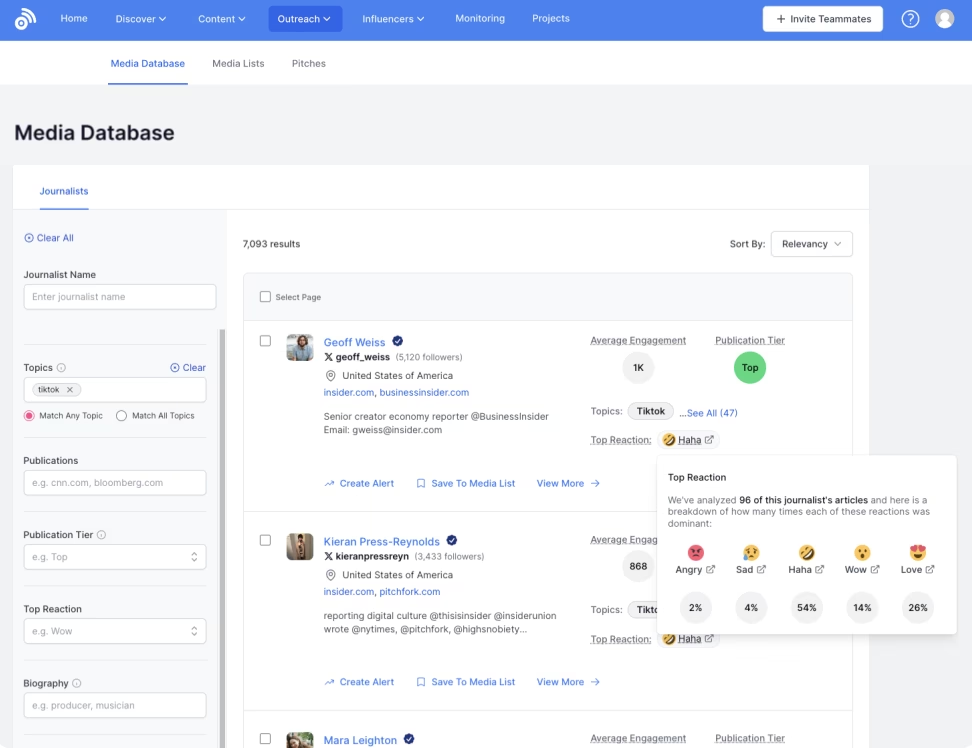
BuzzSumo is a content research platform that tracks what performs well across search engines and social media. It helps marketers find high-engagement topics, measure share metrics, and spot content trends by niche. The platform identifies influencers, surfaces relevant journalists, and reveals which formats attract the most attention. BuzzSumo supports research, outreach, and strategy with real performance data from articles, headlines, and online conversations.

What Are Buzzsumo Popular Features?
BuzzSumo offers powerful content tools that help users quickly discover what’s relevant to their audience. Explore some of the most popular features below.
- AI Pitching and Outreach Tools. Generate personalized journalist emails using profile data, campaign prompts, and AI-suggested pitch formats.
- Competitive Intelligence. Track competitor mentions across the web and set alerts to monitor performance gaps or opportunities.
- Content Analysis. Compare content performance by shares, engagement, and publication trends to discover what works in each niche.
- Related Topics. Uncover keyword clusters and explore trending subtopics, questions, and content types within one central view.
- Content Ideas Generator. Discover timely article topics using real-time data from news headlines, blogs, and social platforms.
- Backlink Analysis. Monitor inbound links by domain, track new citations, and rank backlinks by social reach or engagement level.
What Is Buzzsumo Pricing?
BuzzSumo offers tiered plans for individuals, agencies, and enterprise teams. Pricing reflects access to reports, historical data, and user seats.
- Content Creation. $199 monthly – 1 user, 2 custom alerts, 2 trending feeds, and 2 years of historical data.
- PR & Comms. $299 monthly – 5 users, 5 custom alerts, 15 trending feeds, and 3 years of historical data.
- Suite. $499 monthly – 10 users, 10 custom alerts, 30 trending feeds, and 5 years of historical data.
- Enterprise. $999 monthly – 30 users, 50 custom alerts, 50 trending feeds, and 5 years of historical data.
What Is Semrush?
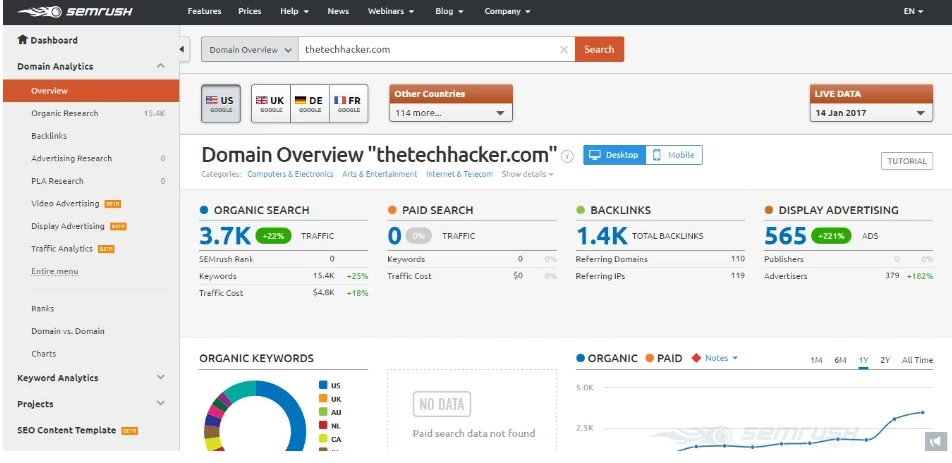
Semrush is a digital marketing platform that unifies tools for SEO, advertising, and content strategy. It delivers keyword trends, link data, and traffic insights to guide performance improvements. The platform simplifies competitive research and supports planning with regularly updated datasets tied to search behavior, paid visibility, and user intent.
What Are Semrush Popular Features?
Semrush brings together performance data, competitor insights, and content workflows in one unified platform.
- Keyword Overview. Explore search demand using keyword volume, CPC trends, SERP layout, and ranking difficulty.
- Backlink Tools. Evaluate linking domains, anchor text usage, authority scores, and overall link growth over time.
- Traffic Analytics. Compare traffic share across domains, pinpoint referral sources, and analyze on-site behavior by region.
- PPC Tools. Adjust paid strategies using bid history, keyword match types, and ad copy performance.
- Site Audit. Detects on-page errors, indexation gaps, and core web vitals affecting technical SEO.
- ContentShake AI. Generate content drafts using SEO data, pre-filled structures, keyword prompts, and visual tools.
What Is Semrush Pricing?
Semrush uses a three-tier pricing model based on usage volume and team needs.
- Pro Plan. $139.95/month, 5 projects, tracking up to 500 keywords, and checking up to 10,000 results per report.
- Guru Plan. $249.95/month, 15 projects, tracking up to 1,500 keywords, and checking up to 30,000 results per report.
- Business Plan. $499.95/month, 40 projects, tracking up to 5,000 keywords, and checking up to 50,000 results per report.
Buzzsumo vs. Semrush: Which Platform Fits Your Goals?
Both Buzzsumo and Semrush are popular with marketers, but they serve different goals. This comparison helps you choose the platform that matches your current goals.
1. Keyword Research
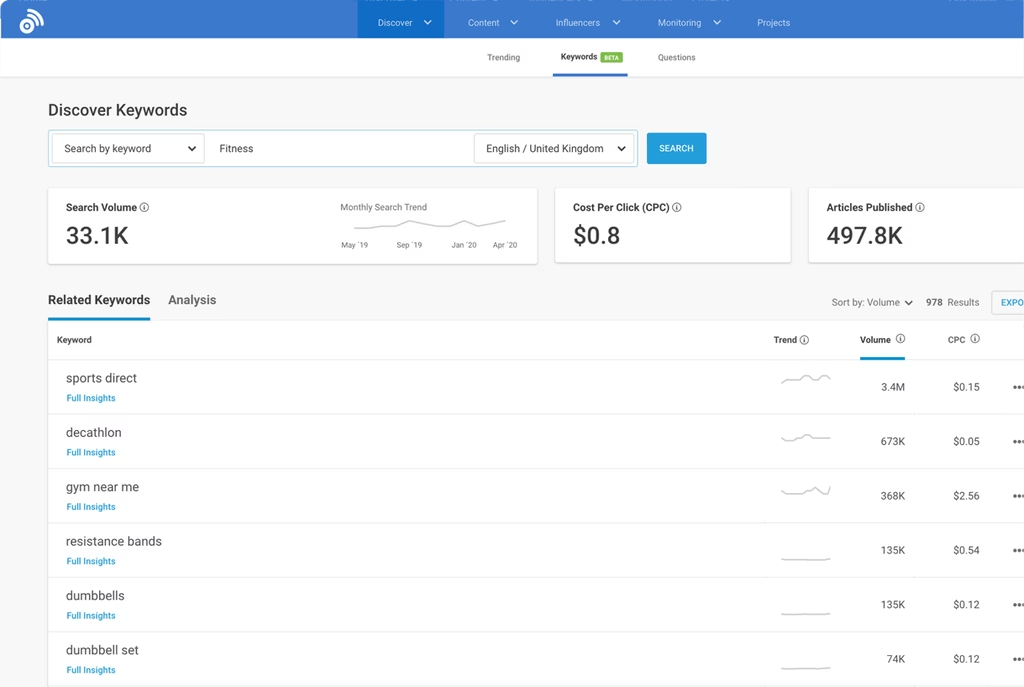
BuzzSumo focuses on identifying content-driven keyword trends across social media and web platforms. The tool surfaces popular phrases tied to viral stories, which gives marketers insight into real-time audience interests. It highlights metrics like search volume and CPC while prioritizing topic relevance and emerging engagement patterns.
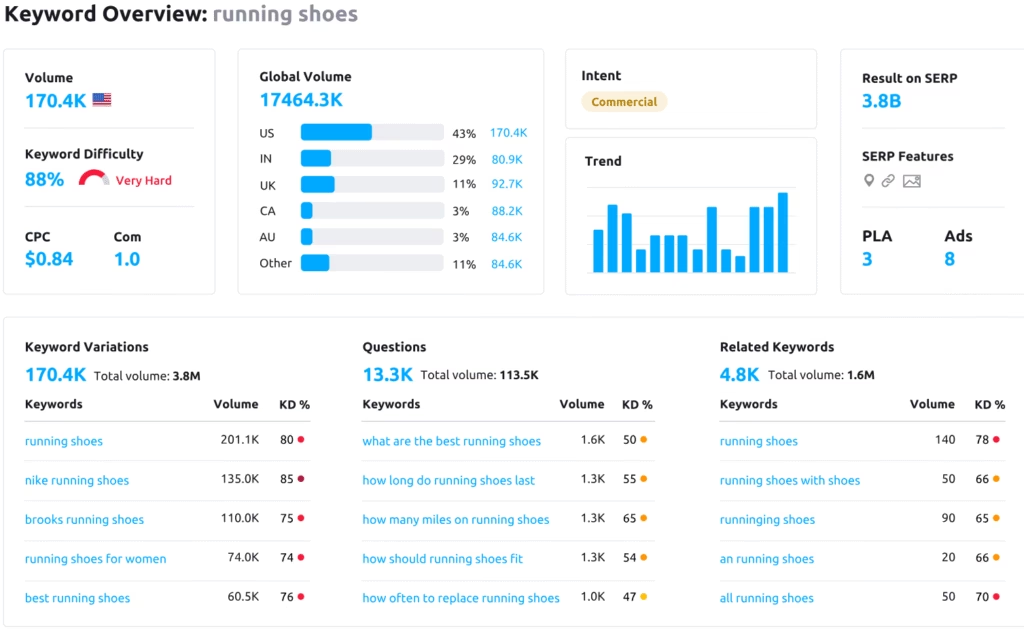
Semrush offers keyword research across organic, paid, and content tools, with data on 26+ billion keywords, which includes long-tail and question-based terms. The platform provides search volume, CPC, intent, keyword difficulty, and SERP feature data which enables marketers to build full-site keyword strategies, spot PPC opportunities, and uncover ranking gaps.
The winner for keyword research is Semrush.
Semrush outperforms BuzzSumo for keyword research because it delivers broader search coverage, deeper metric variety, and advanced SEO integration. The platform evaluates intent, competitiveness, and traffic potential across both paid and organic channels.
2. Competitive Intelligence
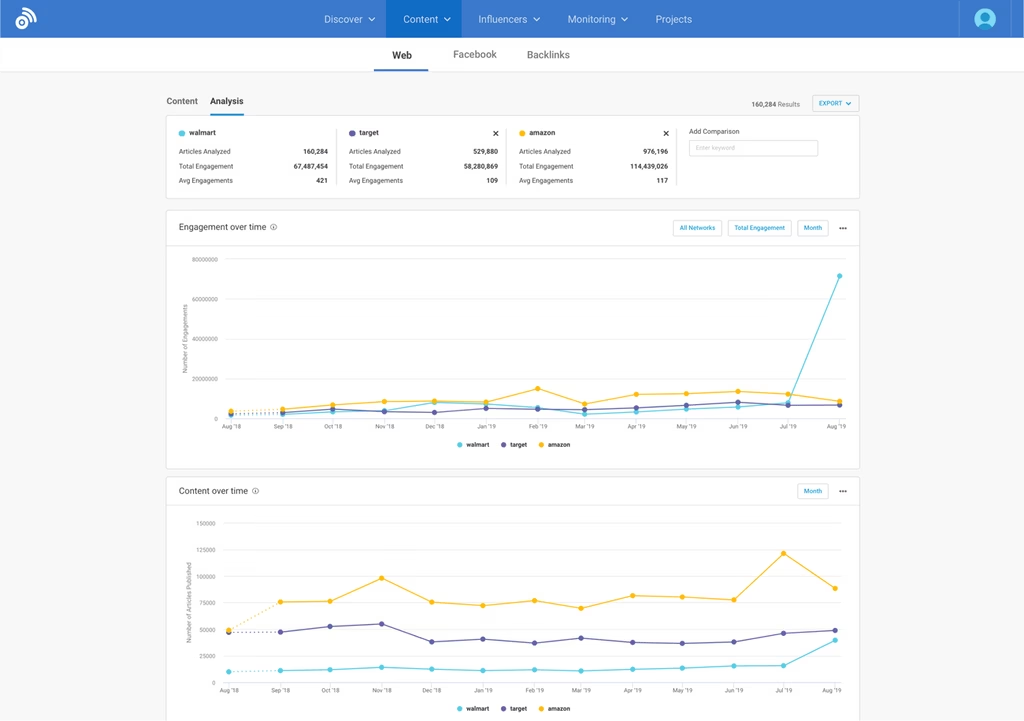
BuzzSumo focuses on content-based competitive intelligence with features that allow tracking competitor engagement, monitor social shares, and measure post frequency across platforms.
The tool delivers instant alerts for brand mentions and viral trends. Marketers build dashboards to compare performance, identify content gaps, and adjust campaigns based on audience reactions and competitor visibility.
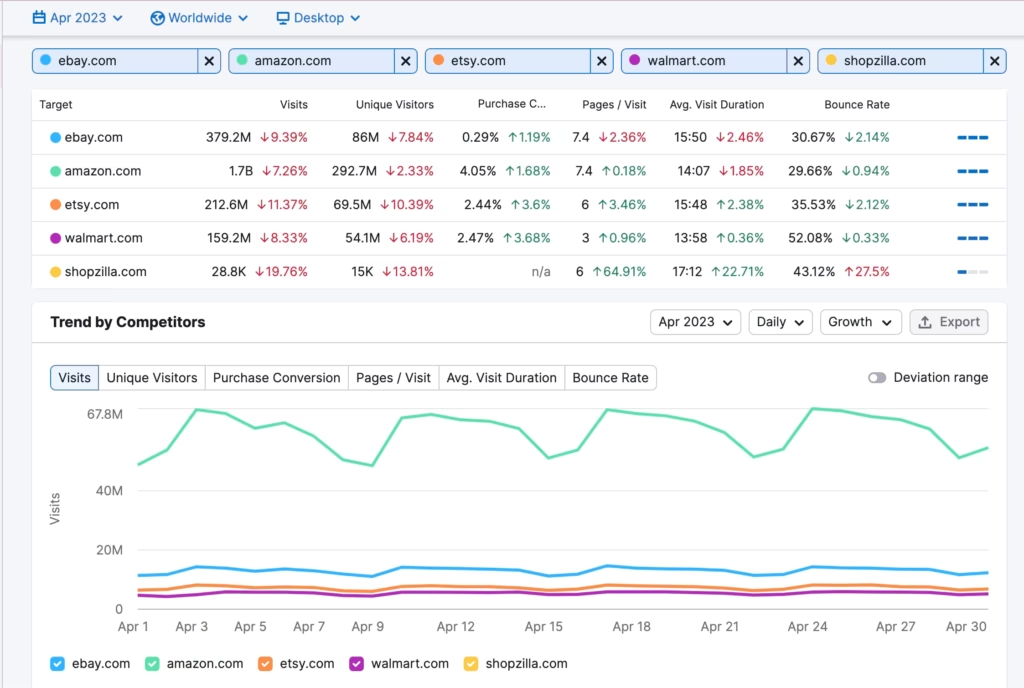
Semrush delivers competitive intelligence through search, traffic, and advertising data. It tracks competitor website visits, analyzes referral sources, and monitors audience behavior across locations.
The platform highlights organic rankings, ad strategies, and backlink growth. Teams review traffic benchmarks, study competitive gaps, and optimize campaigns based on detailed website performance data.
The winner for competitive intelligence is Semrush.
Semrush outperforms BuzzSumo in competitive intelligence because it offers broader marketing data beyond social engagement. Users access multi-channel benchmarks, evaluate up to 200 competitor domains, and uncover audience behavior trends that BuzzSumo does not track.
3. Backlink Analysis
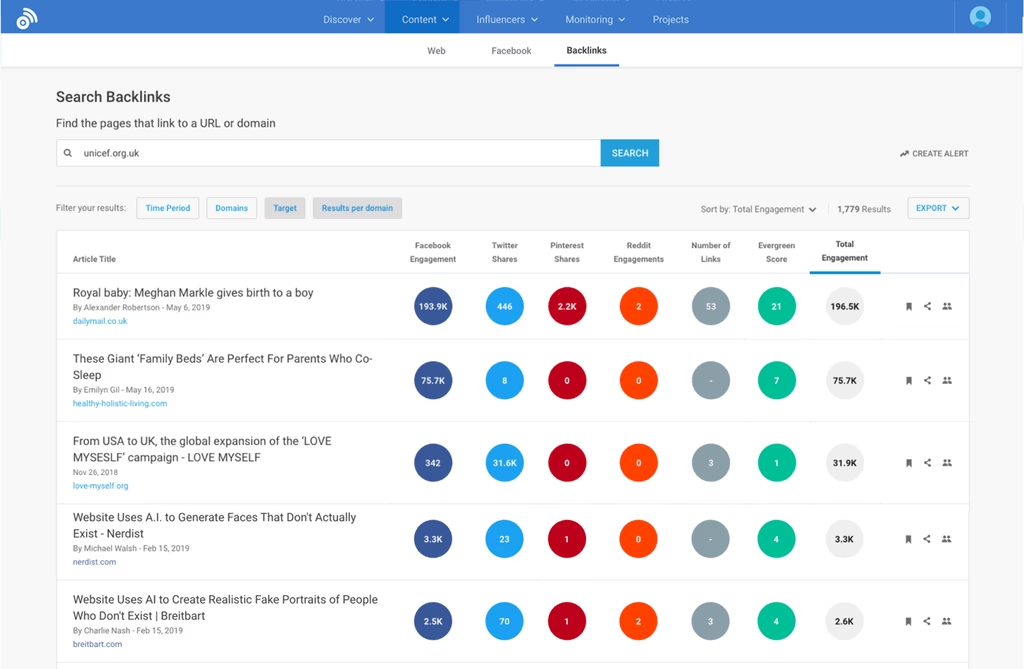
BuzzSumo offers backlink visibility through a content-sharing lens. Users track which websites link to their articles and measure link performance based on social engagement. The tool highlights which pages attract the most backlinks and sends alerts for new inbound links.
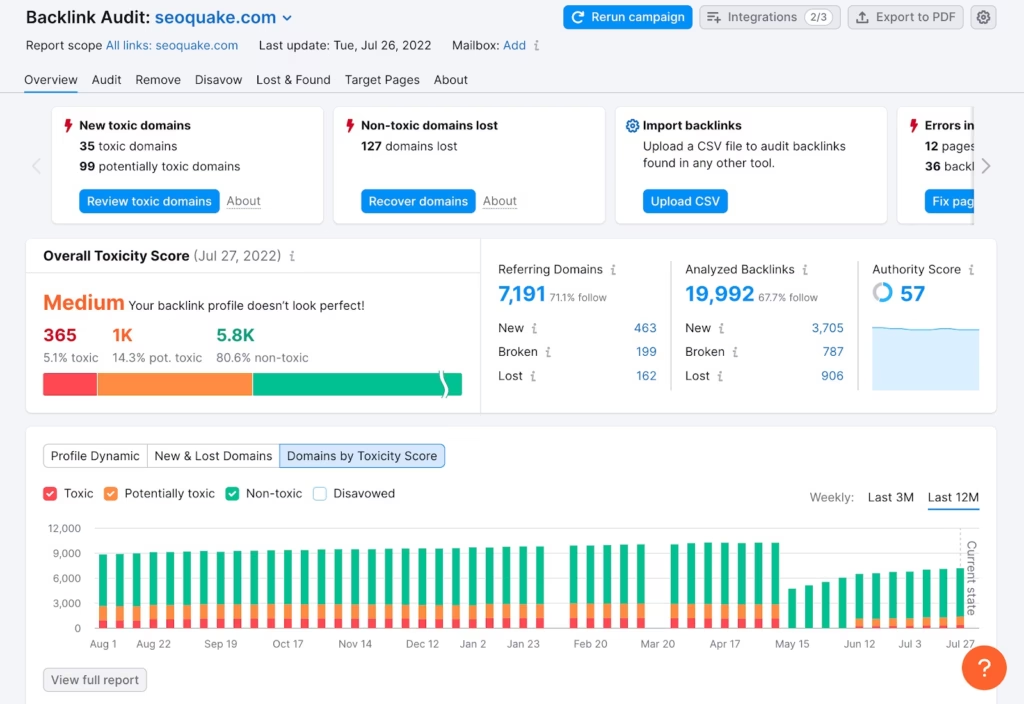
Semrush approaches backlink analysis with a focus on SEO performance and link quality. Users review anchor text profiles, spot toxic backlinks, and evaluate referring domain authority. The platform tracks link-building progress over time, compares competitor link profiles, and uncovers outreach targets using one of the largest backlink databases available.
The winner for backlink analysis is Semrush.
Semrush delivers stronger backlink diagnostics by linking SEO performance directly to in-depth link quality metrics. BuzzSumo emphasizes social-driven link trends but lacks the same level of detail for assessing technical SEO link health.
4. Content Research
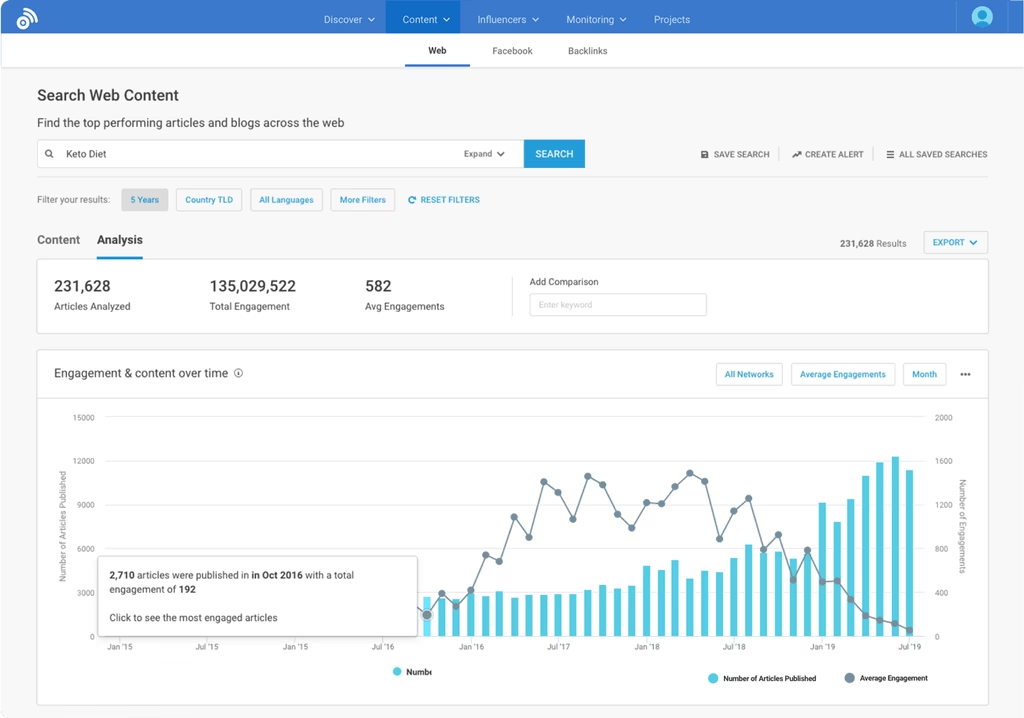
BuzzSumo focuses on surfacing high-performing content from across the web and social media. Users explore trending topics, viral articles, and popular formats based on real-time engagement data. The platform scans billions of posts and articles daily, which gives marketers immediate insights into what resonates within any niche or industry.
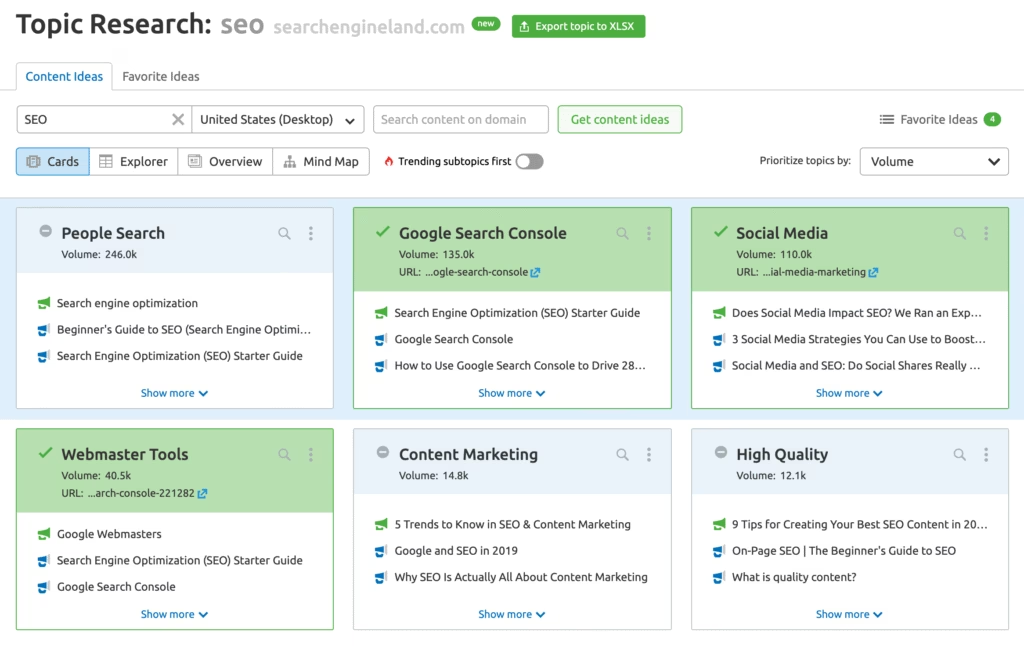
Semrush delivers content research through its Topic Research tool that allows users to enter a target keyword to generate related subtopics, headlines, and audience questions. It organizes the results into cards, which help users build SEO-driven content plans while referencing competitor strategies and search trends.
The winner for content research is Buzzsumo.
BuzzSumo outperforms Semrush in content research because it pulls from a larger dataset covering both articles and social media. The platform updates engagement metrics in real time and tracks cross-platform performance.
5. AI SEO
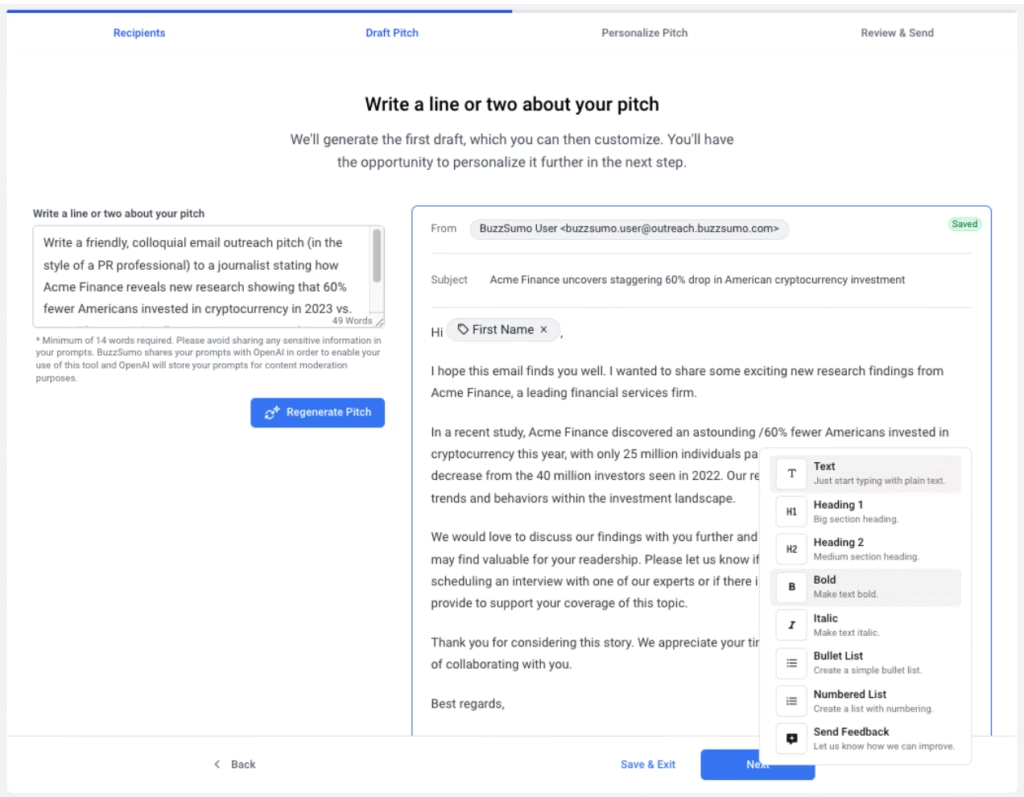
BuzzSumo applies AI to streamline content research and media outreach. Its AI Pitching and Outreach Tools help users craft tailored journalist pitches by generating email templates based on journalist profiles and campaign topics.
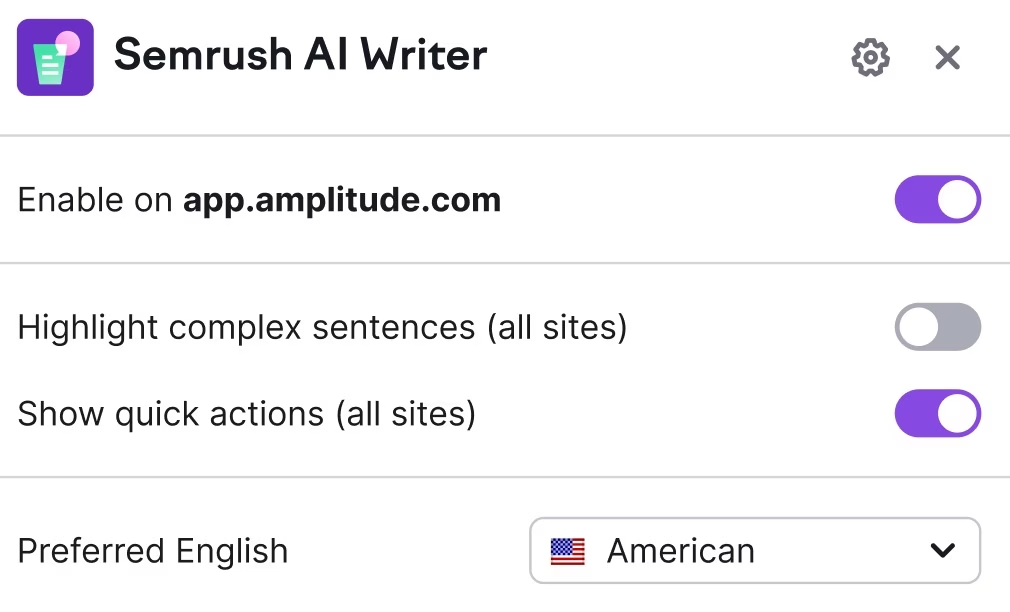
Semrush incorporates AI across multiple SEO functions. Semrush Copilot guides users through SEO workflows with task suggestions and data insights. ContentShake AI and the AI Writing Assistant help generate SEO-focused content.
There is no winner for AI SEO.
Both BuzzSumo and Semrush offer basic AI enhancements without delivering super innovative AI tools for SEO. Users still need to manually manage some core SEO processes.
6. Pricing
BuzzSumo structures its pricing across four tiers designed for individuals, agencies, and enterprise teams. Each level adjusts user seats, search limits, and historical data access. A free trial lets users explore core features for a limited time.
Semrush offers a limited free plan and three paid tiers that provide broader access to features. Higher plans increase limits on projects, reports, and keyword tracking. Access to advanced tools requires additional paid add-ons.
There is no winner for pricing.
Neither tool stands out in pricing. Both include extra costs for add-ons and higher usage limits that increase expenses. Users with tighter budgets might find more value in simpler tools offering essential features without the need for costly upgrades or expanded plans.
Buzzsumo vs. Semrush: Here Is What Top Marketers Use Instead
Semrush offers a robust all-in-one SEO suite. BuzzSumo excels in content trend analysis. But Search Atlas is winning over marketers by delivering both, along with more advanced features, better pricing, and a faster AI-driven workflow built for scale.
Search Atlas Features
Search Atlas offers an integrated suite covering SEO, content research, automation, and reporting within one platform. Users track keyword rankings, analyze backlink profiles, and research content opportunities using built-in tools. The platform connects with GSC, GA4, and GBP, centralizing key performance data.
OTTO SEO
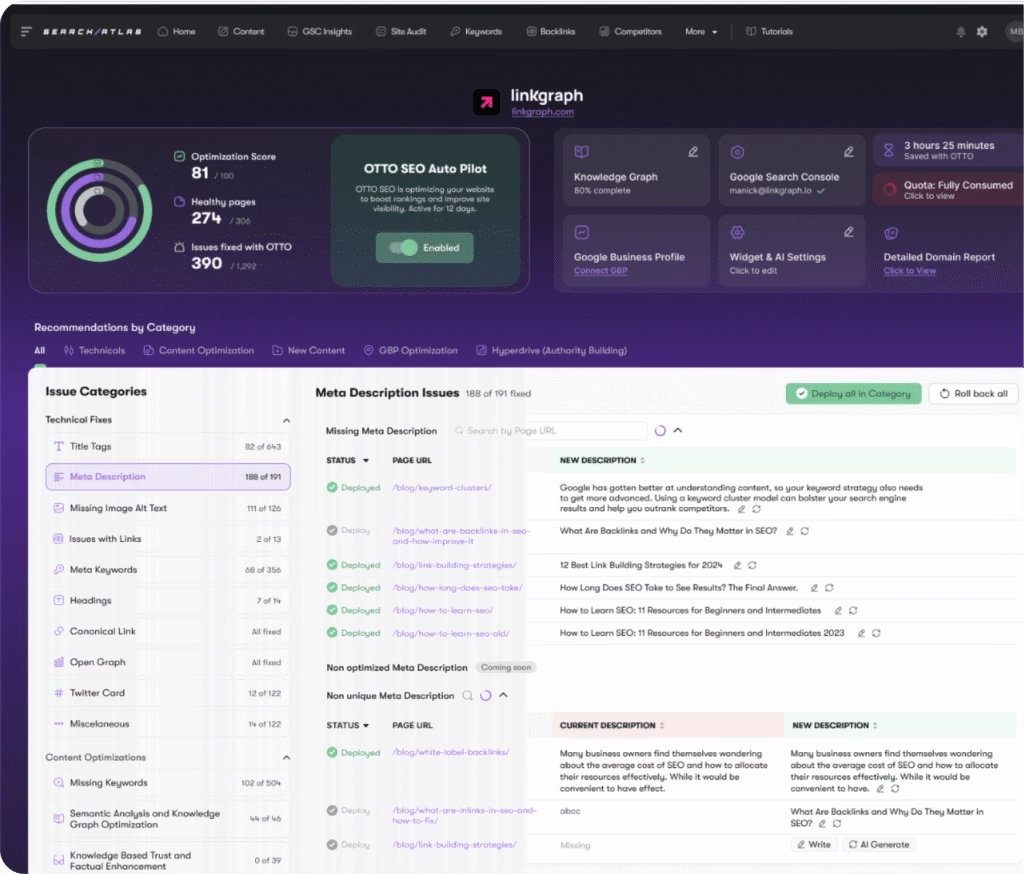
OTTO works as an AI-powered SEO assistant that handles day-to-day optimization tasks across multiple focus areas. It automates technical issue resolutions, coordinates local SEO updates, supports link-building campaigns, and guides on-page improvements.
OTTO adapts its actions based on algorithm shifts, which helps users maintain visibility and rankings while spending less time on manual SEO work.
Backlink Tools
Search Atlas includes a backlink monitoring feature that audits all referring domains and scores link relevance for SEO impact. The system compares your profile with competitor link networks, revealing missed opportunities and risky patterns that limit authority growth.
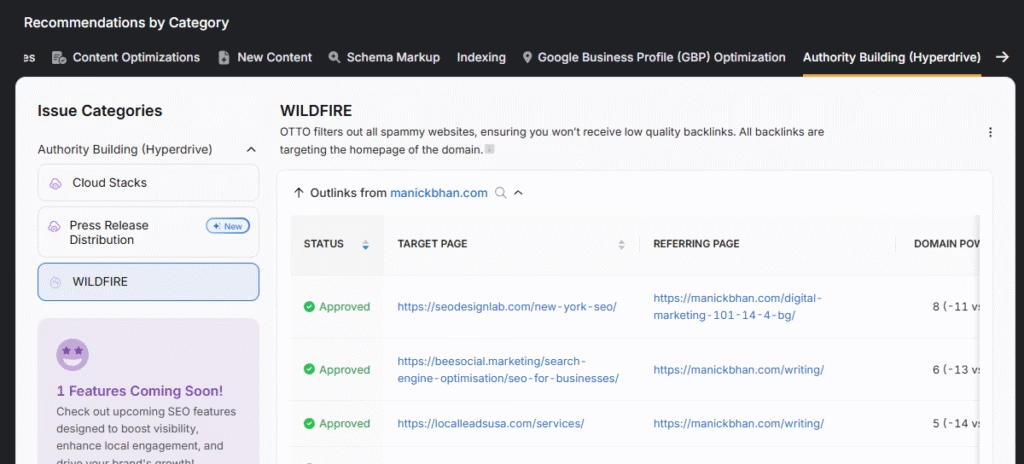
OTTO runs WILDFIRE, an AI-managed outreach network. WILDFIRE coordinates strategic link placements using a scalable 2-for-1 model, where participating sites trade outbound and inbound links across industry-relevant publishers.
Competitor Analysis
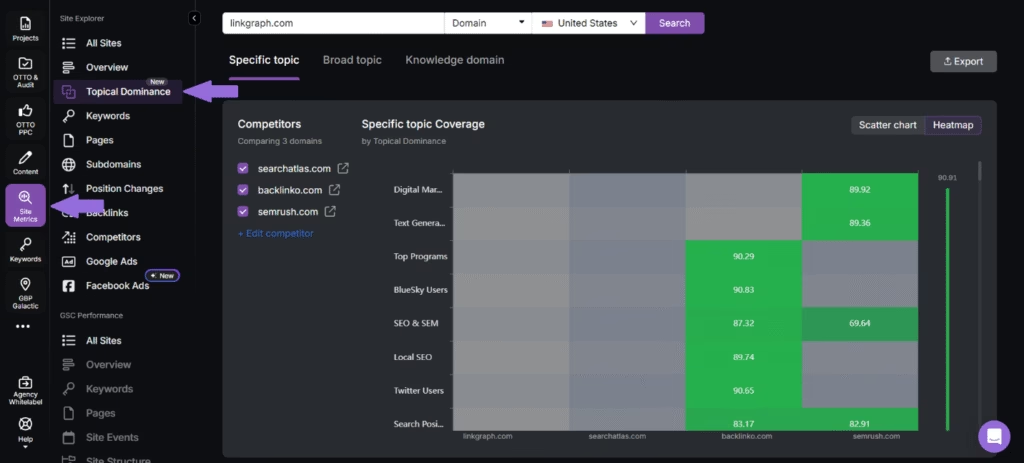
Search Atlas supports SEO benchmarking through tools like Site Explorer and Traffic Insights. Users track keyword visibility, traffic sources, and backlink origins for any domain.
Site Explorer includes Topical Dominance metrics. This feature measures how thoroughly a site covers specific subjects compared to competitors. It evaluates content depth and identifies underrepresented topics to boost topical authority.
Content Tools
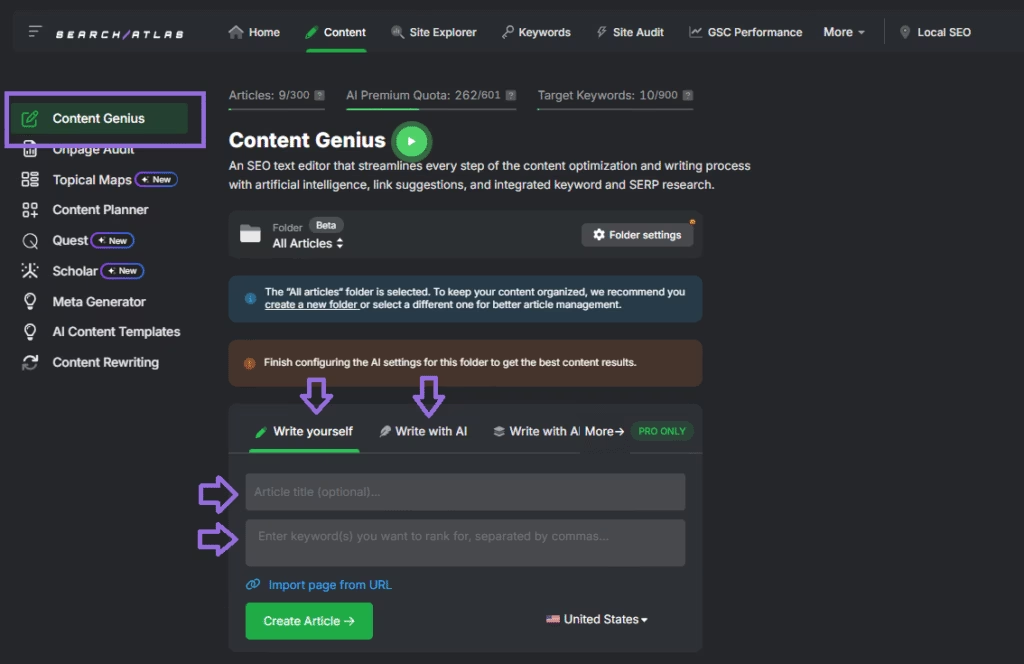
Search Atlas unifies content planning, writing, and optimization within one platform. It selects target keywords, groups them into topic clusters, outlines articles, and produces initial drafts from a single workspace.
Content Genius functions as an AI writing assistant, analyzing competitor content and offering live suggestions for keyword placement, structure, NLP term inclusion, and internal linking.
SCHOLAR, the content quality evaluator, scores drafts for clarity, accuracy, and human-like tone to improve performance and search trust signals.
Keyword Research
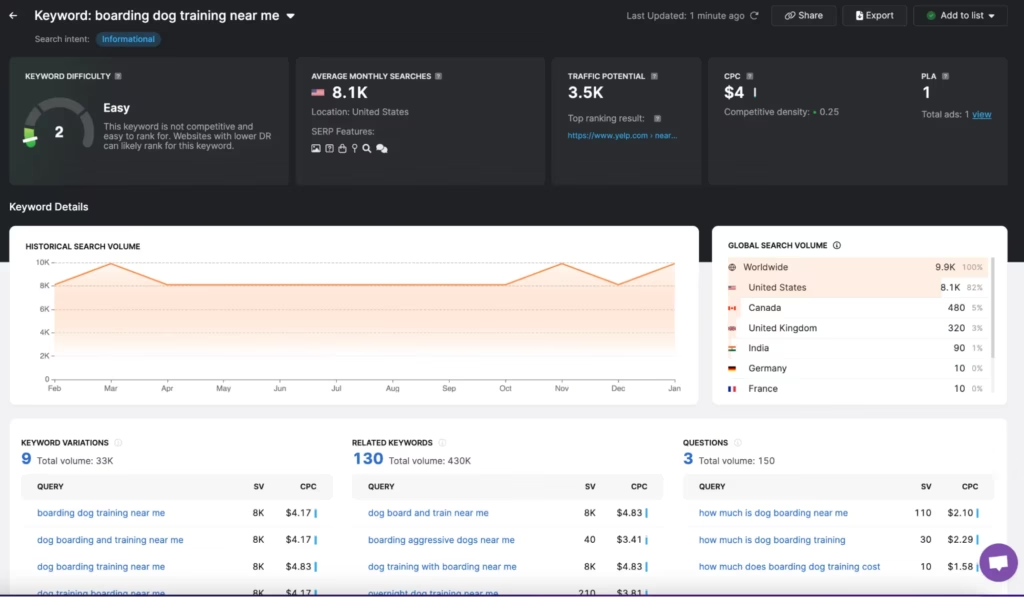
Search Atlas simplifies keyword research with tools that organize key data points. The Keyword Research Tool tracks volume, competition, intent, and trends. The Keyword Magic Tool groups terms by topic and behavior for better targeting. Keyword Gap compares rankings with competitors to expose content gaps and growth opportunities.
Search Atlas Pricing
Search Atlas provides scalable SEO tools with pricing designed for growing teams. Flexible plans include full platform access and free OTTO SEO activations to support automation. The 7-day trial gives users a risk-free way to explore all features before choosing a subscription.
| Starter plan | Growth plan | Pro plan | |
|---|---|---|---|
| Price: | $99 monthly | $199 monthly | $399 monthly |
| Free OTTO Activation | 1 | 2 | 4 |
| User Seats | 2 | 3 | 5 |
| GSC Projects | 5 | 15 | 100 |
| Keywords per Site | Top 10K | Top 100K | Top 1M |
| Onpage In-Depth Audits | 40 | 100 | 200 |
| Keyword Rank Tracking Projects | 20 | 50 | 1000 |
| Backlink Analyzer Projects | 2 | 5 | 5 |
| Total Pages Crawled per Month | 50K | 100K | 10M |
| Aggregator Network Citations | ✅ | ✅ | ✅ |
| Content Genius – AI Blog and Landing Page Generation | ✅ | ✅ | ✅ |
Search Atlas: The Clear Choice for Smarter SEO in 2025
BuzzSumo limits users to basic content trends without full SEO tools for execution. Semrush increases costs quickly for essential features. Both platforms make teams juggle disconnected tools and manage rising fees just to cover core SEO needs.
Search Atlas solves both problems with a single, unified and automated system. The platform includes keyword research, backlink analysis, site auditing, and content planning in one workflow.
For teams tired of juggling tools and managing surprise costs, Search Atlas delivers one platform with full feature access from day one. See how it works, start your free trial today!


